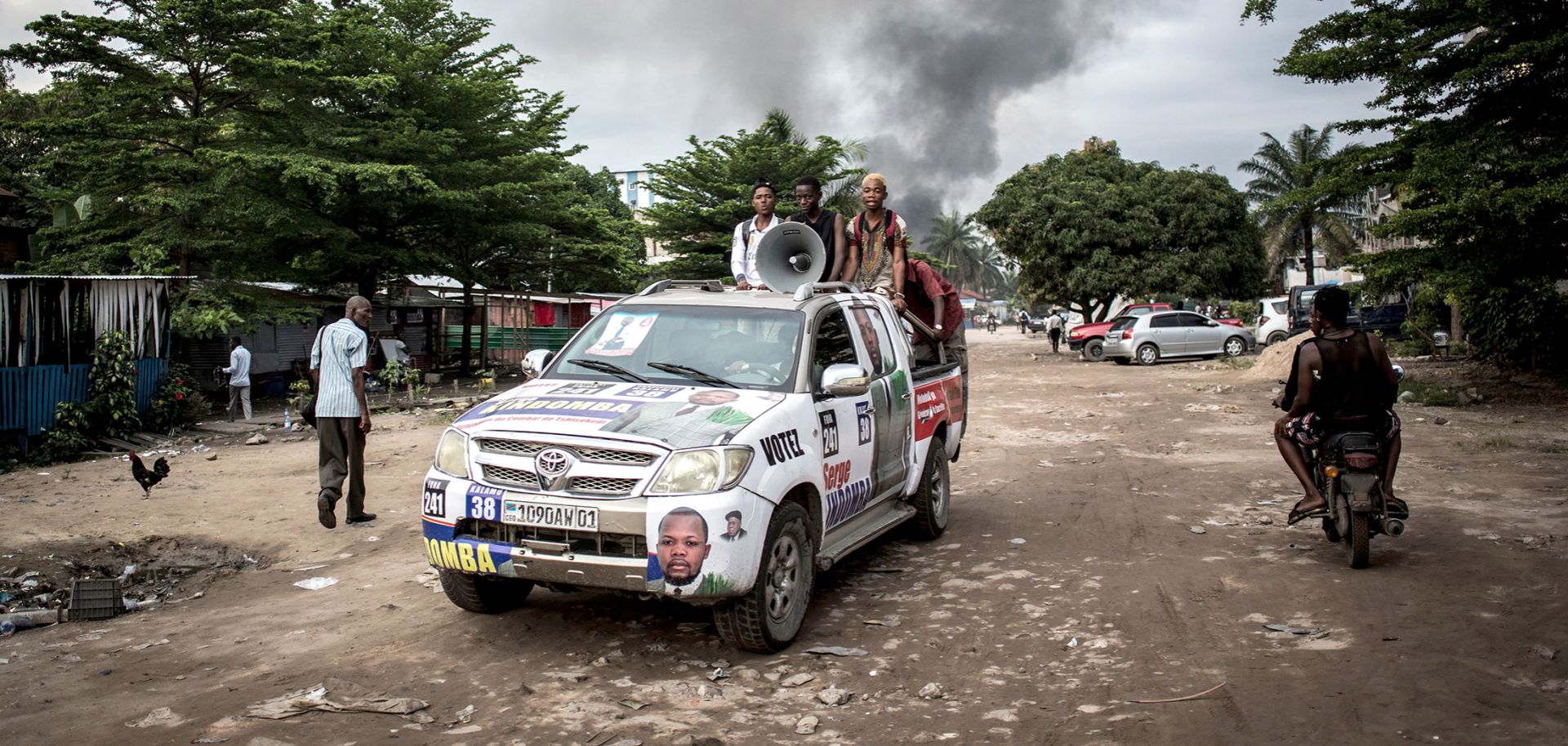ASSESSMENTS
The Congo Elections Will Be Flawed. What Happens After That?
Dec 19, 2018 | 06:00 GMT

A campaign car is seen as smoke rises from a fire at the independent Congolese electoral commission's warehouse in Kinshasa on Dec. 13, 2018, 10 days ahead of presidential elections that have been foreshadowed by violence. Flawed elections appear to be a near certainty, raising fears about instability after the vote.
(JOHN WESSELS/AFP/Getty Images)
Highlights
- Given the Kabila system's deep financial and political interests in holding on to power, authorities are likely to engage in electoral irregularities to benefit the ruling coalition during nationwide voting on Dec. 23.
- The country's opposition could attempt to contest the results, but it would struggle to overcome the Kabila system's hold on government institutions.
- Western powers such as the European Union could impose new sanctions on Kinshasa if violence breaks out after a flawed election.
- In such a situation, China will be well-placed to make additional inroads into the Democratic Republic of the Congo.
Subscribe Now
SubscribeAlready have an account?
